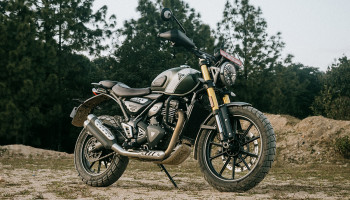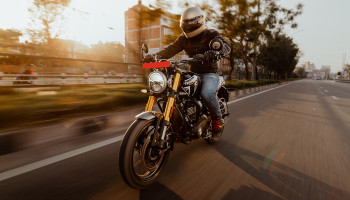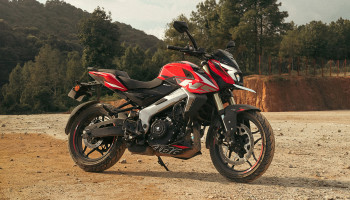Many moons ago we went on a road trip to Janakpur on the Tata Tiago. This was almost eight years ago, right about the time when the Mustang madness had begun to wash over the country and everyone was flocking to the mountains and flooding their Facebook walls with photos. We thought we would do something different and explore the cultural city of Janakpur instead.
Things were a lot different back then. Phone cameras weren’t overpowered with a gazillion megapixels, switching your mobile data on meant committing to a hefty phone bill, and having a friend living abroad whose Netflix account you could use was a “legit flex”. Serious writers did not use pedestrian slang words either.
Also, and more relatable to us, the most prominent difference has to be the prevalence of EVs on Nepali roads. Apart from the few Mahindra E20s and Revas, and maybe the odd Kia Soul EV here and there, there were barely any consumer electric vehicles on the roads of Kathmandu. A stark difference from the convoy of EVs that you see in the streets today.
Present-day folks are still divided on the future of EVs. Many claim that it IS the future and all naysayers don’t know what they’re talking about. Some though, are still reluctant and believe EVs are best suited as a secondary car, or for those who don’t venture out of city limits. Owning a “secondary car” in Nepal is usually a luxury that pertains only to those born with a silver spoon on both ends or a very lucky few who’ve climbed up the ladder of financial success (in a country teetering on a rickety foundation).
The point is, if you invest in a car, regardless of the manner of its propulsion, you intend it to fulfil all of your requirements. Imagine having a car to get groceries, and another to fetch the morning paper. Preposterous!
So, to prove our point, we filled the Tiago EV with four heavy-set auto-journalists and headed over to Janakpur, range anxiety be damned… in theory. In reality, we always kept a close eye on the state of charge of the Tiago EV. The claimed range of 315 km should be enough to get us from Kathmandu to Janakpur, which was 245 kilometers in total. However, claimed ranges often miss the mark when battling the steep climbs and descents of the hills of Nepal. Thankfully, there were checkpoints along the way where we would be able to recharge the Tiago EV if necessary.
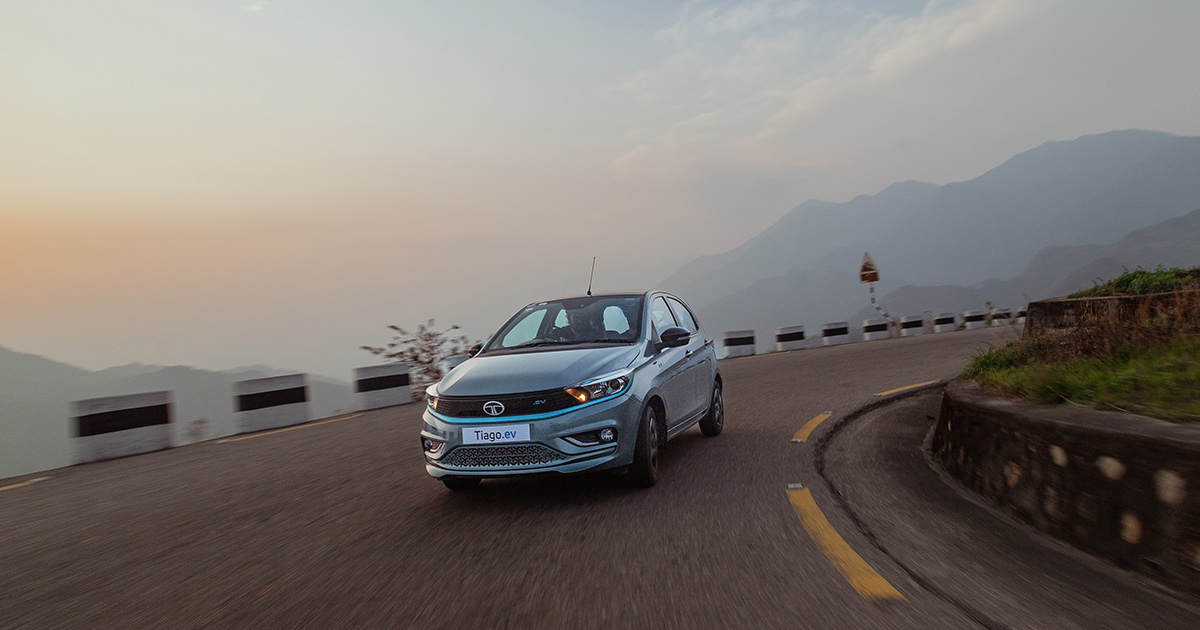
The checkpoint of our choice was at Taj Riverside Resort in Mulkot, situated at the foot of the winding ascent to Sindhuli. Having driven 100 km from when we left Kathmandu, Janakpur was still another 130 km away and we were at 57% battery charge. It only made sense to stop for lunch at the resort and plug the Tiago EV into Tata Motor’s DC charger while we were at it. 36 minutes later, we were 97% battery-charged and ready to go.
On board the non-stop express to Janakpur, we made good time, carving through the windy hillside roads and slowly descending into the Madhesh flats. However, because of a late start and a late lunch, it was already sundown by the time we reached Janakpur. On the bright side, we were welcomed with the bright colourful lights adorning the streets of Janakpur.
The streets were particularly more festive that day because it turned out, we had arrived at Janakpur during the festival of Holi. This was not part of our plan. It turns out Holi takes place a couple of days after Holi in Kathmandu and a day after Terai Holi ends. You can imagine our surprise seeing the first few people staggering around coloured from head to toe in bright powdered colours.
After plugging in the Tiago EV (which was now at 21% SOC) at the hotel's charging port, we set off towards the legendary Old Navarang Hotel. "Not a copy, the original one," a teetering local assured us at the entrance. Bathed in neon lights and adorned with bright red plastic banners showcasing popular tourist spots and local delicacies, the flamboyant façade was impossible to miss.
Stepping inside, we were greeted by a visual and olfactory extravaganza, an eclectic mix of interior elements that defied convention. Fluorescent CFL lights dangled from the ceiling, casting a dim glow over the space. Aluminum chairs hosted locals unwinding after the day's celebrations, none looking particularly sober.
Steel shelves lined with old glass pickle jars brimmed with vibrant mango, citrus, and chilli concoctions, their edges lined with brightly lit neon string lights. The ceiling sported red and white striped plastic canopies, haphazardly fastened and dangling untidily in corners, like a circus setup by drunk monkeys. In one corner stood a blue metal wardrobe, reminiscent of those found in changing rooms, complete with an attached mirror. To top it all off, a large aquarium filled with murky water held a stuffed tiger atop, adding a final touch of whimsy to what we assumed was the go-to restaurant in Janakpur.
Unfortunately, due to the festivities, the Old Navarang Hotel was desperately understaffed. We waited over an hour for our order, but they got it wrong and brought us something else. Not wanting to wait another hour, and risk any more scowling stares from the already overworked staff, we accepted defeat and ate the over-seasoned chicken gravy with scraps of beaten rice that we were served.
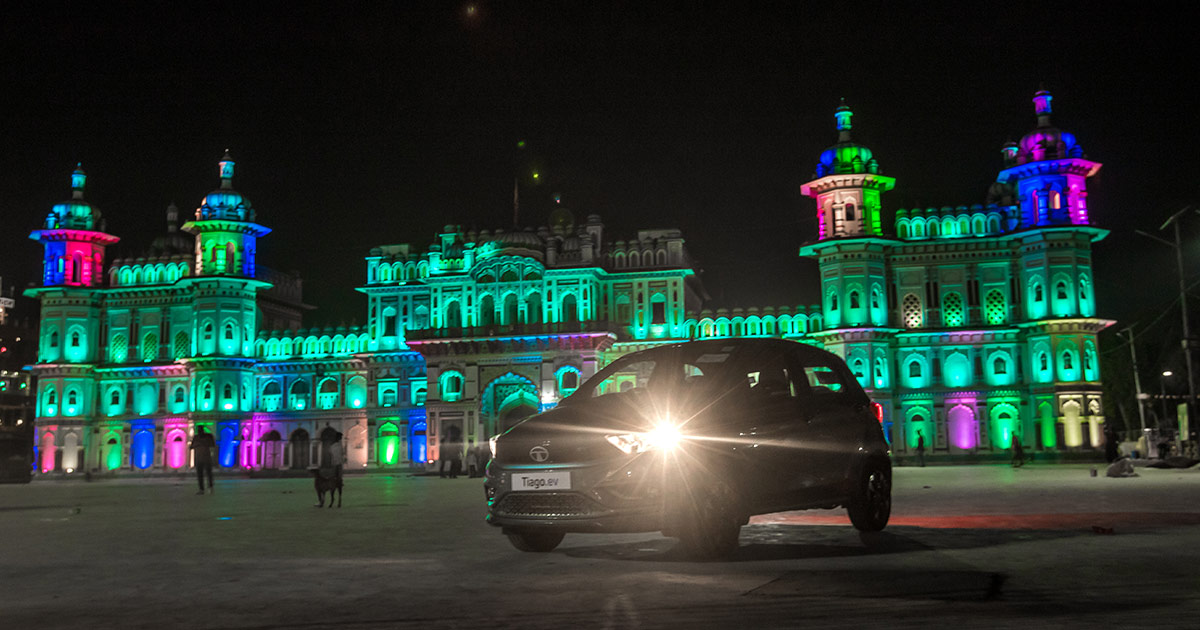
Thankfully, we found a very nice spot to lick our wounds: a paan shop outside the gates of Ganga Sagar. We sat on the sidewalk, chewed on our mitha paans, and called it a night.
The next day, we began bright and early, with a resolute intent to make up for last night’s gastronomical disasters. The Tiago EV was fully charged, and we went in search of a breakfast fitting the cultural city of Janakpur: jeri, puri, tarkari, with some hot sweet tea. Boy, did it hit the spot. Anyone who’s ever had jeri, puri, tarkari in Janakpur will vouch for us when we say you’ll never get anything like this in the Capital.
Truth be told, Janakpur is different in many ways from Kathmandu. The people tread a completely different walk of life. The stern exterior that you may observe when you first meet the locals quickly melts away, and before you know it you’re deep into a friendly conversation with people you’ve never met before. Such was the case when we met Pano Das Didi at the Janakpur Women’s Development Center.
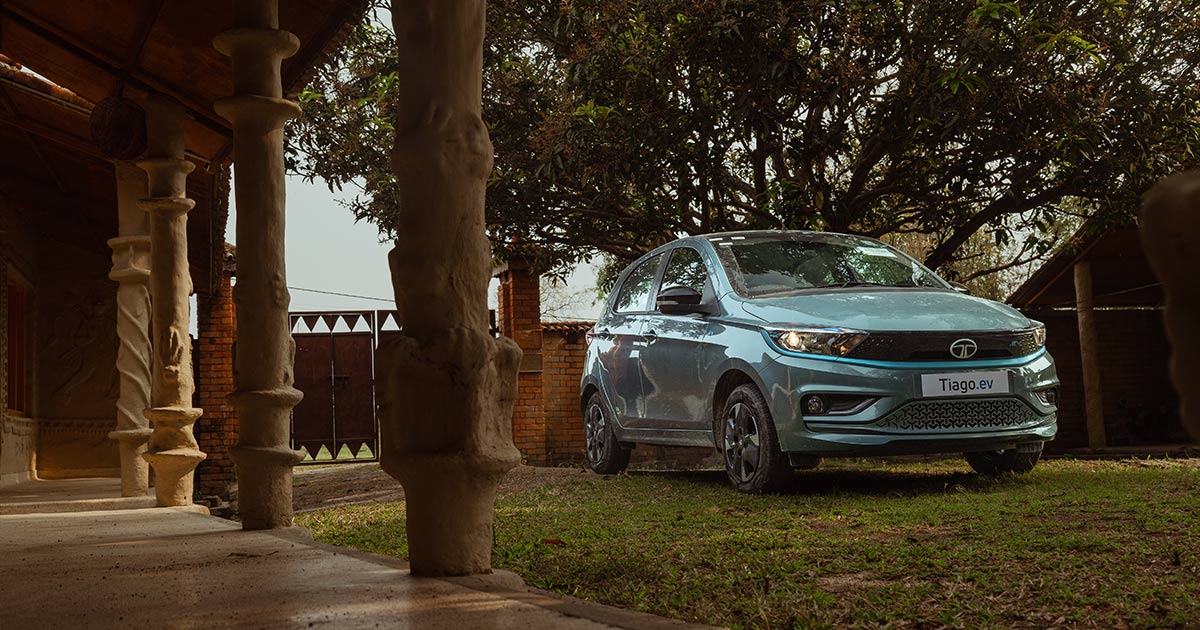
54 years of age and having worked close to three decades as a Mithila art artist, we sat under the lush mango tree and talked about her work, life, and family, which she happily shared with us. A short distance away from the center of the city, the Janakpur Women’s Development Center is a women’s-run NGO and home to 40 artists who create fine art, textile (silkscreen and embroidery), ceramics and papier-mache crafts. We made sure we bought at least one of her creations during our shopping spree at the Center.
We visited several other tourist spots in Janakpur, including the magnificent Janaki Mandir and the serene Ganga Sagar. Spectacular in their ways, but it isn’t the tourist spots that give you the true experience of a place. A truly genuine experience can only be had when you dare to venture outside the first few places that pop up when you Google a destination.
With that in mind, our culinary adventures continued as we indulged in more of the local delicacies. First on our list was the Janakpur Lassi, popularized by the Janakpur Lassi we grew up having in Indrachowk, Kathmandu. Falling prey to the exaggerated praises of a popular Food Reviewer, we went to a popular lassi spot called “Hum Yehi Lassi Piten Hain”. It wasn’t bad but we didn’t see what the hype was about, the one you get in Indrachowk was way better. Serves us well for blindly listening to an influencer.
To make up for this beverage bereavement, we caught up with a brightly lit stall on wheels that read out Falooda. A scrawny young man at the helm of the establishment whipped us up a colourful concoction made of vermicelli, syrup, ice cream, milk and a flurry of other ingredients. Instant diabetes, but worth it.
The highlight of our local food journey was undoubtedly the fish from 'Lallan Fish Fry.' Fish and Janakpur go hand in hand, and missing out on this local speciality would have been a travesty. The perfectly fried fish, crispy on the outside and tender on the inside, was spectacular.
Throughout our explorations, the Tata Tiago EV proved to be an excellent companion throughout our journey. Its nimble handling and ease of manoeuvrability made navigating the crowded, lawless, and chaotic streets of Janakpur a breeze.
Our trip concluded with a visit to Nocha Lake, a less-visited but serene location that provided a peaceful respite from the city's hustle and bustle. The tranquil waters and the surrounding greenery offered a perfect setting for reflection and relaxation, marking a fitting end to our road trip.
Year after our first excursion, this journey to Janakpur in the Tata Tiago EV was an unforgettable experience, blending the charm of a culturally rich city with the excitement of an electric road trip. From the vibrant streets decorated for Holi to the lifestyle and foods of the city, every moment was delightful in its way.
We can see why it isn’t the most popular tourist destination, it isn’t the cleanest of places, the people there aren’t immediately friendly with you, and you don’t get the modern facilities you get in the Capital. But the places are vibrant, the people have a clean soul, and the vibes are something you will not get anywhere else. Janakpur might not be everyone’s favourite destination, but it is most definitely worth an occasional visit.
















